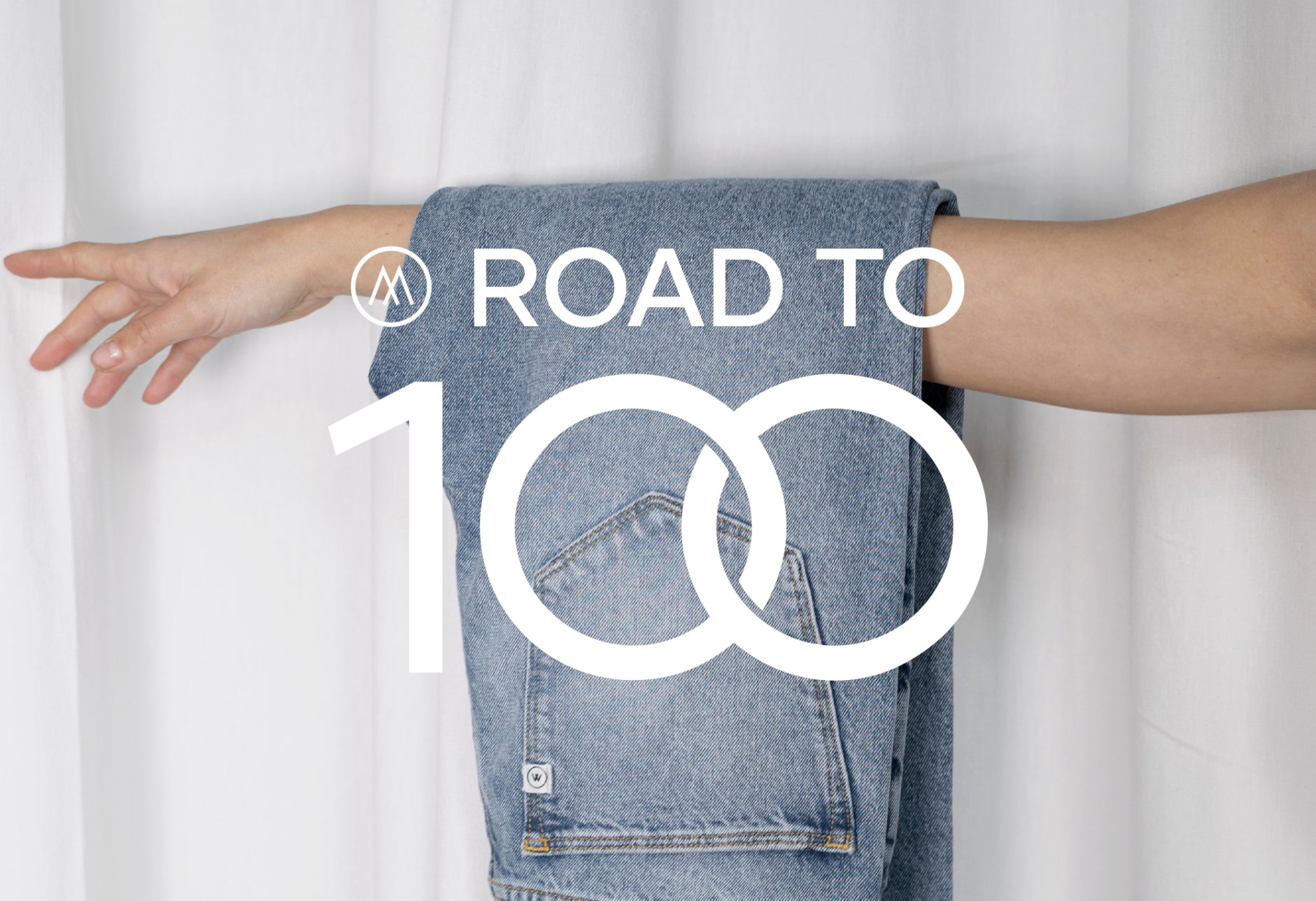Circularity is our inspiration, end goal and everything in between. The best way for us to live this philosophy? Attempting the ultimate challenge and creating a jeans from 100% post-consumer recycled cotton. This is our 'Road to 100'. This blog will keep you up to date on where we stand on this exciting project.

The Road to 100 Project is all about pushing the limits of circular denim. The aim of the project was to make a pair of jeans from 100% post-consumer recycled cotton. Why? Around the world, a truckload of textiles is landfilled or incinerated every single second while our planet is unable to regenerate its resources fast enough. This is our attempt to directly combat the textile waste and resource consumption problem within the fashion industry.
This project began in 2019 and after endless testing and trying together with Saxion University, we finally created our first sample in 2022. The worldwide first of its kind! This was celebrated with the launch of a mini documentary series. The series explores our motivation behind this ambitious project, the technical challenges we encountered and the method that made it a success in the end.

The most important finding for us was that a combination of mechanical and chemical cotton recycling was needed. Mechanical recycling is the typical process of shredding a fabric. The reason why we cannot already use 100% mechanically recycled fibres in our jeans is because this recycling process shortens the original cotton fibres. Therefore, we can so far use a maximum of 40% without compromising on quality. Chemical recycling, on the other hand, is a process where a non-toxic, endlessly recyclable solvent is used to break down the cotton fabric into a pulp. From this pulp you can then create long cellulosic fibres. But because chemically recycled fibres are too smooth to give the authentic denim look, we combine mechnically and chemically recycled fibres to get the best of both worlds.

Now that we had proven it's possible, the next step was to scale this up in production. A project that comes with new challenges. Things that may work in a lab setting, can prove difficult in a supply chain production process. One major challenge remains the supply of the specific type of recycled cotton needed to achieve a 100% post-consumer recycled product. Therefore we aim to increase the amount of recycled content step by step, until we reach 100%.

Currently we are working with a range of new fabrics which include up to 30% of the innovative material TENCEL™ Lyocell made with REFIBRA™ technology. What makes this type of lyocell unique is that, apart from 70% wood pulp, it contains 30% chemically recycled cotton waste. Therefore these new fabrics are our first successful attempt of combining mechanically recycled cotton with chemically recycled cotton in our collection pieces. Our learning from this step can help us eventually reach 100% post-consumer recycled content.
But of course there is even more going on behind the scenes. We are currently doing exciting trials with some of our suppliers and an additional type of material using chemically recycled cotton. Once we have results on this, you can find an update within this blog - stay tuned!






Kommentare
What topics does the mini documentary series cover, as mentioned in the article?